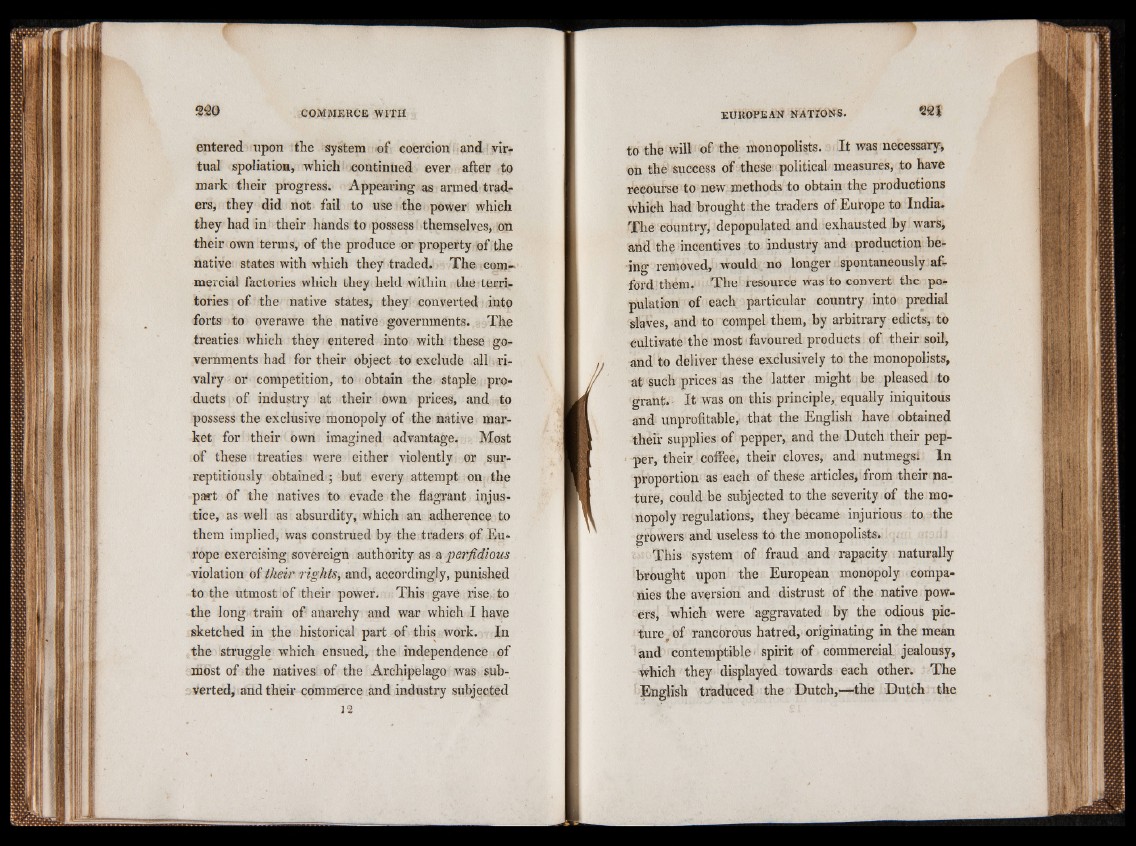
entered upon the system of coercion and virtual
spoliation, which continued ever after to
mark their progress. Appearing as armed traders,
they did not fail to use the power which
they had in their hands to possess themselves, on
their own terms, of the produce or property of the
native states with which they traded. The commercial
factories which they held within the territories
of the native states, they converted into
forts to overawe the native governments. The
treaties which they entered into with these governments
had for their object to exclude all . rivalry
or competition, to obtain the staple products
of industry at their own prices, and to
possess the exclusive monopoly of the native market
for their own imagined advantage. Most
of these treaties were either violently•r ' or sur- reptitiously obtained ; but every attempt on the
pairt of the natives to evade the flagrant injustice,
as well as absurdity, which an adherence to
them implied, was construed by the traders of Europe
exercising sovereign authority as a perfidious
violation of their rights, and, accordingly, punished
to the utmost of their power. This gave rise, to
the long train of anarchy and war which I have
sketched in the historical part of this work. In
the struggle which ensued, the independence . of
most of the natives of the Archipelago was subverted,
and their commerce and industry subjected
12
to th? will of the monopolists. It was necessary,
on the success of these political measures, to have
recourse to new methods to obtain the productions
which had brought the traders of Europe to India.
The country, depopulated and exhausted by wars,
and the incentives to industry and production be-
in0- removed, would no longer spontaneously afford
them, The resource was to convert the population
of each particular country into predial
slaves, and to compel them, by arbitrary edicts, to
cultivate the most favoured products of their soil,
and to deliver these exclusively to the monopolists,
at such prices as the latter might be pleased to
grant. It was on this principle, equally iniquitous
and unprofitable, that the English have obtained
their supplies of pepper, and the Dutch their pepper,
their coffee, their cloves, and nutmegs! In
proportion as each of these articles, from their nature,
could be subjected to the severity of the monopoly
regulations, they became injurious to the
growers and useless to the monopolists.
This system of fraud and rapacity naturally
brought upon the European monopoly companies
the aversion and distrust of the native powers,
which were aggravated by the odious picture
f of rancorous hatred, originating in the mean
and contemptible ■ spirit of commercial jealousy,
which they displayed towards each other. The
English traduced the Dutch,—the Dutch the